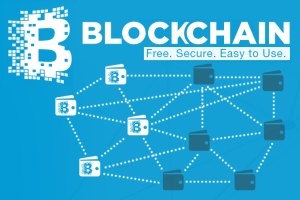 Leading Bitcoin wallet developer Blockchain this week announced the open-source alpha release of the Thunder Network, which it describes as “the first usable implementation of the Lightning network for off chain bitcoin payments that settles back to the main bitcoin blockchain.” Though only a first step, the Thunder release could help pave the way to enabling the sort of high-speed, high-volume transactions and micro-payments on which many media-related uses of Bitcoin are likely to depend.
Leading Bitcoin wallet developer Blockchain this week announced the open-source alpha release of the Thunder Network, which it describes as “the first usable implementation of the Lightning network for off chain bitcoin payments that settles back to the main bitcoin blockchain.” Though only a first step, the Thunder release could help pave the way to enabling the sort of high-speed, high-volume transactions and micro-payments on which many media-related uses of Bitcoin are likely to depend.
“Thunder has the potential to facilitate secure, trustless, and instant payments. It has the ability to unleash the power of microtransactions, to allow the bitcoin network to handle heavy loads, and to increase user privacy.,” Blockchain co-founder Peter Smith wrote in a blog post. “In this Alpha version, we prove that it can be done.”
As conceived in a seminal white paper by Joseph Poon and Thaddeus Dryja, lightning networks are type of Bitcoin-pegged sidechain designed to overcome certain critical limitations of the main Bitcoin blockchain, specifically the time it can take to validate transactions and the limited number of transactions it can handle at one time.
According to Poon and Dryja:
The payment network Visa achieved 47,000 peak transactions per second (tps) on its network during the 2013 holidays[2], and currently averages hundreds of millions per day. Currently, Bitcoin supports less than 7 transactions per second with a 1 megabyte block limit. If we use an average of 300 bytes per bitcoin transaction and assumed unlimited block sizes, an equivalent capacity to peak Visa transaction volume of 47,000/tps would be nearly 8 gigabytes per Bitcoin block, every ten minutes on average. Continuously, that would be over 400 terabytes of data per year.
Clearly, achieving Visa-like capacity on the Bitcoin network isn’t feasible today. No home computer in the world can operate with that kind of bandwidth and storage. If Bitcoin is to replace all electronic payments in the future, and not just Visa, it would result in outright collapse of the Bitcoin network, or at best, extreme centralization of Bitcoin nodes and miners to the only ones who could afford it. This centralization would then defeat aspects of network decentralization that make Bitcoin secure, as the ability for entities to validate the chain is what allows Bitcoin to ensure ledger accuracy and security.
One basic reason for those limitations is that Bitcoin is built on a so-called gossip protocol, in which all transactions are broadcast to all nodes in the network, and all nodes must reach consensus on on the current state of the chain for those transactions to be validated.
Poon and Dryja’s solution is to move transactions that do not need to be broadcast to the the entire network — such as direct micro-payments between two parties that can be validated by the parties themselves — to a side network capable of supporting discrete micro-payment channels. Those transactions can then periodically be aggregated and reconciled with the main Bitcoin blockchain. Multiple micro-payments could be sent sequentially between the parties to allow for any size of payments.
The result is a vast increase in speed and capacity without breaking contact with the more liquid Bitcoin blockchain.
According to Blockchain, the Thunder Network should be able to process 100,000 transactions per second, more than twice the peak volume ever achieved on the Visa network.
It’s not hard to imagine potential media-related uses of Bitcoin bumping up against the speed and capacity limitations of the Bitcoin blockchain, such as real-time authorizations and micro-payments for access to content. Increasing the speed and volume and which such transactions can be executed and validated on a blockchain could be critical to many RightsTech applications.
Sidechains and alt-currencies will be among the main topics at the inaugural RightsTech Summit being held July 26 in New York City. Click here for information on how to register.
